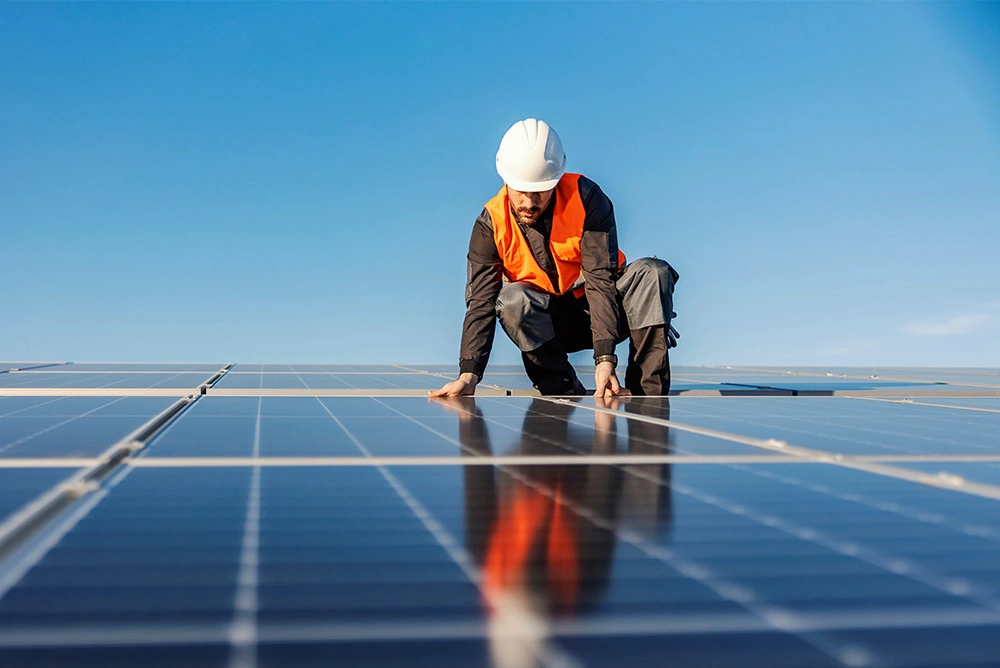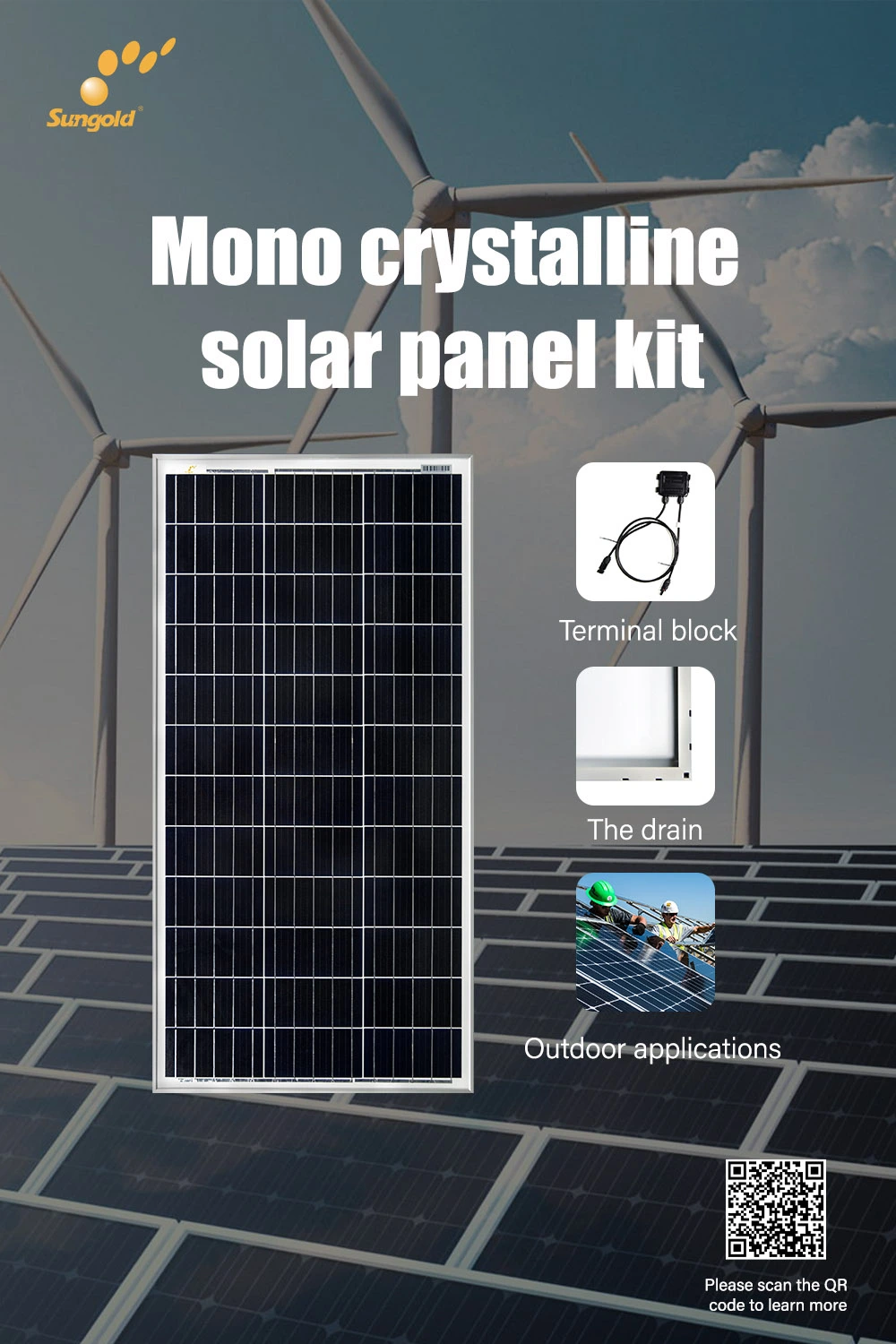How should you choose between a single 500-watt solar panel and two 250-watt solar panels for 500w power supply? Power is a key factor in evaluating the performance of a solar panel. The power of a solar panel is usually measured in watts (W).
In this article, we will analyze the differences between 500-watt power supply: a single 500-watt solar panel and two 250-watt solar panels in terms of weight, installation, maintenance, and effectiveness.
500 Watt Panel Vs. Two 250 Watt Panels
Weight
The manufacturing materials determine the weight of solar panels, like 500w so big power is usually traditional rigid solar panels, the general factors affecting solar panels:
- Glass or plastic panels
- Supporting back sheet
- Solar cells
- Aluminum frame
- Accessories such as junction box cables
The weight of solar cells is negligible, when you buy two solar panels, the weight of the frame is about 30% heavier compared to one solar panel, which can be more costly for transportation as well as installation. The junction box cables and other accessories for a single solar panel are better stowed for transportation than two. Of course, if you are considering a large solar project, the weight is even more important, as transportation costs, packaging costs, and a single 500w solar panel is more suitable.
Installation
When you have enough space for installation and it is a fixed installation project, 500w solar panels undoubtedly have a natural advantage, fewer screws, fewer wires, less is more, no matter wiring or installation, it is much simpler. Lower technical difficulty and higher installation factor. When your installation space is limited or affected by shadows, you can choose two solar panels, decentralized installation is more flexible to deal with shadows better. You can also use MPPT control to minimize the impact of shadows on the efficiency of solar panels. Most of the solar energy on the market utilizes bypass diode technology, which makes shadows and shading less of an issue. New solar system components and accessories may affect the scalability factor. Therefore, compatibility with new technologies may need to be considered during future upgrades.
Maintenance
In post-installation maintenance, 2 solar panels are more advantageous than one solar panel in that if one of the panels fails, the system can still partially work. This improves the reliability of the system. In addition to this, 250w solar panels may be at 12v, whereas larger power panels such as 500w may be at 24v, it is possible to upgrade a 12v system to a 24v system using a battery regulator, but it is very difficult to dismantle a 24v system to a 12v system again. Of course, it is easier to clean and maintain a single panel than two.
Cost
The cost of solar panels is usually calculated in terms of how much they cost per watt, and there may be little difference in price between all 500w and 2 pieces of 250w. However, the inverter is also a necessary component when installing solar panels and it is not cheap, usually a single 500w solar panel only needs to be fitted with a single inverter, whereas two solar panels may require two inverters, and it is more advantageous to opt for a single solar panel. The same may be true for other components. When considering future expansion, two 250watt solar panels may require more inverters, increasing system complexity and cost. However, in some special environments, a distributed design may be a better choice.
Appearance
A single large panel has a cleaner and more generous appearance, while small panels installed in a decentralized manner have different aesthetics, and you can choose the type according to your needs.
What is a 500 Watt Solar Panel?
A 500 watt solar panel is designed to deliver robust performance for medium to large-scale energy requirements. It’s perfect for those looking to reduce their carbon footprint while ensuring they have enough power to meet their needs without relying heavily on grid electricity.
Benefits of Using 500 Watt Solar Panels
- High Energy Output: 500 watt panels generate enough energy to power small appliances or contribute significantly to household energy requirements.
- Cost Efficiency: With higher energy output, these panels provide more value for the space they occupy compared to smaller panels.
- Versatility: Ideal for various applications, from residential rooftops to commercial settings and even remote locations.
Key Considerations Before Installation
- Space Requirements: Ensure your roof or installation area can accommodate the size of 500 watt panels.
- Sunlight Exposure: Assess the typical sunlight exposure of your installation site to predict the efficiency of your solar setup.
- Regulatory and Permit Issues: Check local regulations and permit requirements before installing solar panels.
Installation Tips
- Hiring a Professional: For optimal performance, professional installation is recommended to avoid common pitfalls and safety issues.
- Orientation and Angle: Positioning your panels correctly is crucial for maximizing sunlight absorption.
- Maintenance: Regular maintenance is essential to sustain efficiency. Cleaning and inspections should be performed periodically.
How big is a 500-watt solar panel?
The size of a 500-watt solar panel can vary depending on the efficiency of the solar cells used and the design of the panel. Generally, the wattage of a solar panel is determined by multiplying the voltage by the current it produces.
Assuming a standard solar panel voltage of around 30 volts, a 500-watt solar panel would have a current of approximately 16.67 amps (500 watts / 30 volts = 16.67 amps).
Solar panels come in different shapes and sizes, but a common dimension for a residential solar panel is around 65 inches by 39 inches (165 cm by 99 cm) for a 300-watt panel. Therefore, a 500-watt solar panel might be a bit larger, but the exact dimensions can vary depending on the specific model and technology used.
How much does a 500-watt solar panel produce?
A 500-watt solar panel produces the same amount of energy as 5 hours of daily maximum power under ideal conditions with no losses or shading. It can generate 2,500 watt-hours or 2.5 kilowatt-hours of electricity per day.
What are 500-watt solar panels used for?
500-watt solar panels are designed for larger solar power installations. They can be found in setups such as:
Where can solar panels of 500 watts be used?
Solar panels with 500 watts of power can be used for various purposes, such as
Home Photovoltaic Power Generation System: 500W solar panels are suitable for home photovoltaic power generation systems, which can be installed on rooftops or open spaces such as courtyards to provide clean, renewable energy for homes and reduce energy costs.
Commercial and Industrial Uses: 500W solar panels are also suitable for use on rooftops or open spaces of commercial and industrial buildings to provide businesses with a reliable source of clean energy, lowering energy bills and reducing reliance on the traditional power grid.
Agricultural: Solar panels can be used to power agricultural facilities such as irrigation systems, greenhouses, and electric fencing for pastures, increasing the sustainability of agricultural production.
Remote Area and Island Power Supply: In areas or islands far from cities, 500W solar panels can be used as part of a stand-alone power system to provide a reliable power supply, reducing the need for traditional power transmission lines.
Mobile Power: 500W solar panels can be integrated into mobile power devices such as campers, boats, and outdoor equipment to provide an independent source of power for mobile devices.
Emergency Backup Power: Homes, businesses, or government organizations can use 500W solar panels as an emergency backup power source to ensure that basic power needs are maintained in the event of a power outage or disaster.
Water Pumping Systems: Suitable for solar water pumping systems to provide renewable energy for irrigating farmland or supplying drinking water.
Final Views
When choosing any power solar panels you should make a decision based on the actual needs and application scenarios, you can always choose the right solar power solution for you.
Sungold Solar is a leading off-grid solar power solution provider in North America, providing you with 24v, and 12v solar panels in many styles, power, and types to choose from. Contact us to learn more.
FAQ about 500 Watt Solar Panel
- What is a 500-watt solar panel?
- A 500-watt solar panel has a wattage rating of 500 watts under Standard Test Conditions (STC). STC involves testing panel performance in a lab under 1,000 lumens/m² of light and at a temperature of 77°F (25°C). It indicates the power output you can expect from a solar panel under ideal sunlight and temperature conditions.
- In real-world conditions, a 500 W solar panel typically generates about 2 kilowatt-hours (kWh) of daily power and approximately 731 kWh of annual power. Keep in mind that actual output may vary based on factors like location, shading, and weather.
- The efficiency of 500 W solar panels is around 21%, meaning they convert sunlight into electricity efficiently.
- To build a typical residential system with 6 kilowatts (kW) of solar capacity, you would need twelve 500 W solar panels. For reference, achieving the same capacity using standard 375 W modules would require 16 panels.
- What technology is used in 500-watt solar panels?
- Half-cut solar cells: These panels are manufactured with half-cut solar cell technology. Half-cut solar cells are similar in size to panels with traditional solar cells but produce more power. By halving the cells, their current is also halved, reducing resistive losses and making them slightly more efficient. This technology allows more efficient energy production from the same surface area.
- Are 500-watt solar panels suitable for residential use?
- While 500 W solar panels are powerful, they are large, heavy, and more expensive than standard residential panels.
- They are commonly seen in utility, commercial, and ground-mounted solar projects, but not recommended for rooftop installations.
- For most homes, smaller panels are more practical and cost-effective.
- What are the best options for solar panels?
- Consider factors like efficiency, durability, performance in different weather conditions, certifications, warranties, availability, and manufacturer reputation when choosing solar panels.
- While 500 W panels exist, many residential installations use panels in the range of 300-400 watts due to their balance of performance and practicality.













